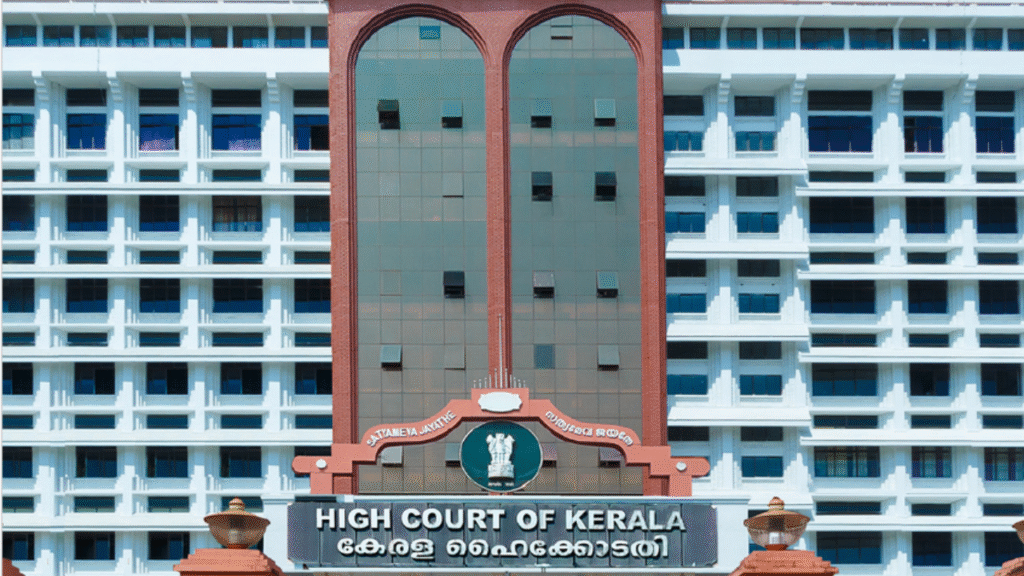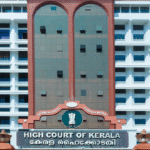MOTOR VEHICLES ACT, 1988 – Section 166 & 168 – Compensation for Accidental Death – Deductibility of Personal Accident Coverage Amount.
(2025) 7 KCD 281 : 2025 KER 55380 : 2025 KLT OnLine 2508
IN THE HIGH COURT OF KERALA
THE HONOURABLE MR.JUSTICE JOBIN SEBASTIAN
MACA NO. 346 OF 2022
Against the Award dated 26.10.2021 in OPMV No.511 of 2017 of Motor Accident Claims Tribunal, Pathanamthitta
FACTS:
The appeal arose from an award dated October 26, 2021, by the Motor Accident Claims Tribunal, Pathanamthitta, in O.P.(MV).No. 511 of 2017.
The claimants sought enhancement of compensation awarded for the death of Abraham Varghese, who died in a motor accident on December 27, 2016.
Abraham Varghese, while driving his autorickshaw (KL-03-AA-2959), was hit from the rear by another autorickshaw (KL-03/S/4523) driven rashly and negligently, leading to his grievous head injuries and subsequent death.
The Tribunal found the accident occurred solely due to the negligence of the 1st respondent (driver of the offending vehicle) and held the 2nd respondent (insurer) liable to pay Rs.18,51,300/- as compensation with 9% interest.
However, the Tribunal deducted Rs.2,00,000/- from this amount, which the claimants had received under the personal accident coverage from the insurer of the deceased’s own autorickshaw (KL-03-AA-2959).
The claimants appealed, aggrieved by this deduction.
ISSUE FOR DETERMINATION:
Whether the amount of Rs.2,00,000/- received by the claimants under the compulsory personal accident coverage of the deceased’s vehicle is liable to be deducted from the compensation awardable in a claim petition filed under Section 166 of the Motor Vehicles Act.
ARGUMENTS:
Appellants’ contention: The deduction was erroneous because the amount was paid under a separate and independent contract and as a social security measure. It should not benefit the tortfeasor or his insurer, and statutory liability under the MV Act should not be diluted by such contractual agreements.
Respondent’s contention: The deduction was justifiable and in line with legal principles, drawing an analogy to mediclaim insurance deductions, and citing United India Insurance Co. Ltd. and others v. Patricia Jean Mahajan and others (2002 (6) SCC 281). They argued the amount was directly related to the death in the motor vehicle accident and thus deductible.
HIGH COURT’S RATIONALE & HOLDING:
The Court noted the primary object of motor accident compensation is to restore the injured/bereaved to their prior position, ensuring reasonable and adequate compensation.
Distinction between Mediclaim and Personal Accident Coverage:
The Court rejected the analogy to mediclaim reimbursements.
Mediclaim is reimbursement-based for specific, quantifiable expenses (e.g., hospital bills) directly linked to medical expenses claimed in the compensation, to prevent duplication of compensation for the same pecuniary loss.
Personal Accident Coverage (PAC), like life insurance, provides a fixed amount upon death or specified injuries, independent of actual expenses or losses incurred. It functions akin to life insurance policies, providing a predetermined lump sum upon death regardless of actual expenses.
Correlation Principle (as per Mariamma James and others v. Alphons Antony and others [2017 (1) KHC 344]): For a deduction to be justified under Section 168 of the MV Act, there must be a clear correlation between the amount received and the loss or expenses being compensated. Medical expenses incurred for injuries leading to death have a correlation, justifying deduction.
Applicability of Helen C. Rebello and others v. Maharashtra State Road Transport Corporation and another [1999 (1) SCC 90]: The Supreme Court held that life insurance money is not deductible from compensation under the MV Act. It is a contractual gain, distinct from statutory compensation for accidental death, as there is no correlation between the two. The insured contributes premiums for life insurance, whereas compensation under the MV Act is received without contribution.
Interpretation of United India Insurance Co. Ltd. and others v. Patricia Jean Mahajan and others [2002 (6) SCC 281]: The Supreme Court clarified that receipts by claimants must have some correlation with the accidental death or be “in the same sphere” to be deductible. Benefits like family pension, provident fund, and gratuity (social security benefits) which would be payable irrespective of accidental death (e.g., also in case of natural death) are generally not deductible. However, if a correlation between the amount received and the accidental death exists, or if they are in the same sphere, then deduction is possible.
Nature of Compulsory Personal Accident Coverage:
Introduced by IRDAI as a statutory and social security measure, mandatory for vehicle owners with a separate premium.
It is contractual in nature but serves a public welfare objective.
The Court emphasized that amounts received under such a statutorily mandated social security scheme, including personal accident coverage, cannot be deducted from compensation under Section 168 of the MV Act.
The amount payable under PAC is not intended to benefit the tortfeasor.
CONCLUSION:
The Tribunal’s direction to deduct Rs.2,00,000/- received under personal accident coverage from the compensation awarded was legally unsustainable.
The appeal was allowed, and the compensation was enhanced by Rs.2,00,000/- (Rupees Two Lakhs only) with interest at 7.5% per annum from the date of the claim petition until deposit.
The respondent insurance company was ordered to deposit the enhanced compensation with interest and proportionate costs within three months, to be apportioned equally among the appellants/claimants.


